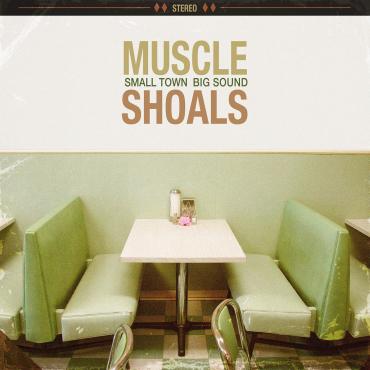Celebrating the Legacy of the Big Sound of Muscle Shoals

The music that flowed out of Muscle Shoals studios is the fount of Americana music. The dynamic group of studio musicians and writers that layered the singular sound emanating from FAME gained their own measure of fame, of course, in Lynryd Skynyrd’s celebration of down-home music, Sweet Home Alabama: Muscle Shoals Has Got the Swampers. The legendary Rick Hall, who died earlier this year, had a vision and an ear for producing now-memorable sounds that cut across generations and at least momentarily—though that’s a far more complicated issue—cut across racial barriers. The list of singers who cut songs in Muscle Shoals includes Arthur Alexander, Wilson Pickett, Aretha Franklin, Candi Staton, Clarence Carter, Duane Allman, the Rolling Stones, and the Osmond Brothers. The sound that issues from this tiny Alabama postage-stamp town blends the earthiness of the blues and the exalted vocal strains of gospel with the funky, swampy tones of bright guitars, the wail of the B-3, and the punchy, soaring and swelling, almost vocal, choruses of horns.
Rick Hall’s son, Rodney, honors his father’s memory by releasing Muscle Shoals…Small Town, Big Sound, an album that gathers contemporary musicians cutting a range of songs associated with the Shoals and which have influenced these musicians. The album succeeds only modestly, for only a few of the tracks resonate with the soulful power and moments of musical transcendence that possess the originals. Some of the matches of song to artist—ostensibly the artist chose the song she or he wanted to sing, but the reasons for these pairings are unclear in the press materials—simply fail because the artist lacks the range or power. The most glaring mismatch is Brent Smith of Shinedown attempting to sing Wilson Pickett’s “Mustang Sally”; Smith has neither the range nor the soul to pull off the effort, and the song falls flat; since Pickett was one of the early icons of the studio, this song deserves better. Chord Overstreet’s version of Bob Seger’s “We’ve Got Tonight” is a similar mismatch, and Aloe Blacc’s version of “I’ll Take You There” is nice enough, but unremarkable and lacks the funky defiance of The Staple’s Singers’ version. Steven Tyler turns in a mediocre version of the Stones’ “Brown Sugar”; it lacks here the straight-ahead blues rock funk with which Stones delivered it.
Some of the choices are just headscratchers. Alison Krauss sings with the most ethereally beautiful voice in bluegrass and country music, but she can’t reach the pain of Gregg Allman’s “Come and Go Blues,” and why is Alan Jackson singing “Wild Horses”? Smartly, the producers preserve an almost note-for-note musical version of the song, but it comes across not as a painfully devastating moment in a singe’s life but as an almost sweet country love song.
The best songs on the collection preserve the energy of the originals and the artists capture their power. The album opens with Keb’ Mo’s get-down-to-it version of Clarence Carter’s “The Road of Love.” He and master guitarist Kelvin Holly—who’s one of the top ten guitarist playing today—capture the fire, the grit, the funk of Carter’s and Duane Allman’s original; Holly’s slide guitar dances along Allman’s licks with beauty. Eli “Paperboy” Reed gives such life to Jimmy Hughes’ tune “Steal Away” that it dominates the collection. Reed knows how to get in the song, find every phrase and turn it inside out, and elevate the song so that it moves us beyond our ordinary lives. He captures the soulfulness of the original. Mike Farris, joined here by the Blind Boys of Alabama, turns in the other spectacular performance on the album with their version of “Respect Yourself.” Farris lives in this song so that his version breathes the life of the song out in his soul shouts and fiery interpretation. Candi Staton’s “I Ain’t Easy to Love,” one of the last songs Rick Hall produced before he died, closes the album with Staton’s characteristic originality.
Listening to the band that back the singers is in many ways worth the price of the album. Band leader Brad Guin has assembled a dynamic group of players—including, among others, Holly on guitar, James Le Blanc on guitar, David Hood on bass, Norbert Putnam on bass, The Shoals Sisters (Cindy Walker, Marie Lewey, Carla Russell) on background vocals, and Guin, Charles Rose, Vinnie Ciesielski, and Harvey Thompson on horns—that give these songs their signature sound.
Like many such efforts, Muscle Shoals…Small Town, Big Sound has its disappointing moments and its exalted moments, but Hall and the musicians gathered to honor his father and his amazing legacy, as well as the transformative music that came out of Muscle Shoals, at least find ways to send us back to the originals and to remind us why this sound is the fount of Americana music.




